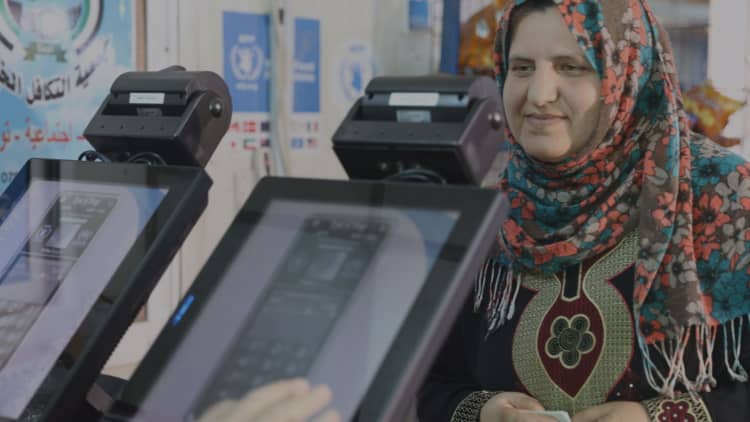Grocery giants Walmart and Sam's Club are requiring their lettuce suppliers to get on the blockchain bandwagon.
Those providing leafy green vegetables to the grocery chains will need to upload data about their foods to blockchain within a year, the companies said in letters to suppliers Monday.
The companies highlighted an E. coli outbreak in romaine lettuce that recently affected more than 200 people and salmonella in products such as eggs and breakfast cereal. Using blockchain and storing the information digitally, a supplier could theoretically see which farms are infected and quickly stop the supply to restaurants and consumers.
"Walmart believes the current one-step up and one-step back model of food traceability is outdated for the 21st Century and that by, working together, we can do better," Walmart said in its letter. "There is no question that there is a strong public-health and business-case for enhanced food traceability."
Even when Walmart has been able to determine affected areas and get the foods out of grocery stores, it said, millions of heads of romaine lettuce had to be removed from the marketplace, and consumers lost confidence regardless of the region it was grown in.
With blockchain, all fresh leafy greens suppliers are expected to be able to trace their products back to farms "in seconds – not days," Walmart said in a letter to suppliers. Direct suppliers will be required to conform to Walmart's standards and "enable end-to-end traceability" back to farms by Sept. 30, 2019, the company said.
A real use case
While companies including Amazon, Facebook and Microsoft have all announced the fact that they're doing work in blockchain, this is one of the early and very few tangible use cases announced by a major Fortune 500 company.
Walmart has been piloting the technology on IBM's Food Trust blockchain for 18 months, using it to track everything from mangoes to chicken. The result is a reduction in the time it takes to track a food from a Walmart store back to the source to minutes, compared with days or sometimes weeks, Walmart said.
Blockchain is the technology that underlies cryptocurrencies such as bitcoin. It records transactions on a public, distributed ledger, gets rid of the need for a third party in most cases and is touted as faster and more secure by advocates.
Despite few real announcements, blockchain has been a corporate buzzword this year. According to PwC's 2018 Global Blockchain Survey, which included 600 executives from 15 territories, 84 percent of them said their companies are "actively involved" with the technology.
While WalMart did not say how much the blockchain move would cost farmers, IBM launched a site to walk suppliers through onboarding and aims to implement a "user-friendly, low-cost" transition.
WATCH: This is how blockchain can give 'invisible' people an ID



